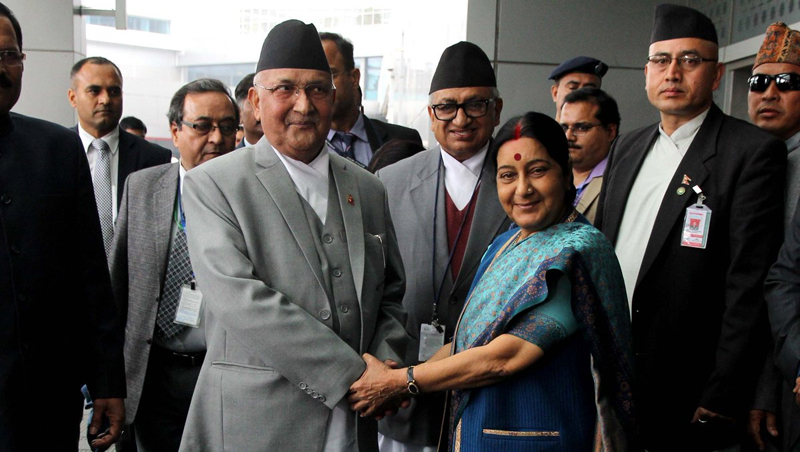LETTERS: Settle issues amicably
India’s External Affairs Minister Sushma Swaraj has said that India welcomed Nepal’s newly-formed constitution following its amendment on January 23. Even Indian premier Narendra Modi has termed Nepal’s Constitution a ‘significant achievement’ for the fact that it was formed with democratic struggle at the end of his one-on-one talks with visiting Nepali premier KP Sharma Oli. Honestly, the new Constitution has not been able to satisfy the Madhesi parties though it was promulgated after enough homework and with an overwhelming majority of the Constituent Assembly. The government has formed a political panel which is expected to address some key issues related to the boundaries of the federal units. PM Oli has clearly said that the issues of inclusion and citizenship have already been settled and the boundary issue is not a permanent one. Let us hope that the political committee, also to be represented by Madhesi parties, will sort out the remaining issues amicably.
Pratik Shrestha, Kathmandu
Solution
PM Oli’s visit to India which has started a comprehensive dialogue process is welcome news “Nepal, India sign crucial agreement” (THT, Feb 21, Page 1). Nothing is more important than resolving any conflicts and misunderstandings over a dialogue table than waging a war of words and making insensitive comments to make the situation worse. I appreciate politicians on both the sides refraining from making damaging statements and negative remarks. The socio-economic and socio-cultural ties with India have been re-established and both the nations should move forward to strengthen trade and commerce, diplomatic and strategic ties without looking at the past, finding fault with one another. They should also promote cultural contacts between people on either side of the border. Both the nations need peace, progress and stability in the region and need to walk side by side in spite of past misunderstanding. The flow of business people, traders, pilgrims, tourists and students across the border will be important for reviving the economy and should be encouraged. However, I would humbly like to mention that although everything for the time being looks smooth and peaceful but the undercurrent of the nation suggests that this is a just lull before the storm. PM Oil’s ability will be judged whether he is able to take the Madhesi parties on board the implementation of the new constitution. No economic progress is foreseeable without resolving the political crisis. Coalition governments are always weak and have too many dissident voices to cater; as a consequence they fail miserably in the main task assigned to and that is nation building. Unless a permanent political solution is passed through the parliament is redefining disputed boundaries and the question of proportional representation with consensus and support of the agitating parties; another jolt is just waiting for the political parties and economy of the nation in the corner.
Saikat Kumar Basu, Canada






